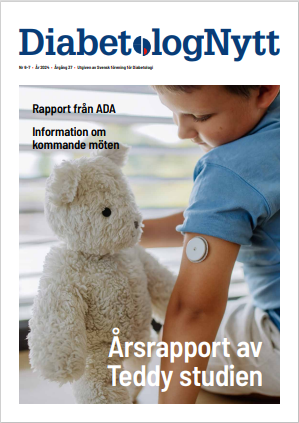Diabetic patients with non-ST-segment elevation ACS appear to benefit from early invasive treatment, a benefit that has not been observed in low-risk nondiabetic patients
Michelle O’Donoghue, MD, MPH, from Brigham and Women’s Hospital in Boston, and colleagues wrote, ”In terms of absolute benefit, the number of nonfatal MIs (myocardial infarctions) prevented with an invasive strategy over 1 year per 1,000 diabetic patients was 37 compared with only one nonfatal MI prevented per 1,000 patients without diabetes mellitus.”
”During 12 months of follow-up, the triple composite endpoint of incidence of death, MI, or re-hospitalization with ACS was 30.5% in diabetic patients versus 20.3% in nondiabetic patients (P<0.001)." In their meta-analysis, O'Donoghue and colleagues reviewed nine randomized clinical trials conducted between 1994 and 2012; cardiovascular outcomes were provided for each trial and stratified by diabetes status, resulting in a cohort of 9,904 patients. Of this group, 1,789 (18.1%) presented with diabetes at baseline.
They found the diabetic patients had more extensive coronary artery disease on angiography, including a higher prevalence of three-vessel or left main coronary artery disease (48% versus 31%, P<0.001).
The researchers noted that the frequency of revascularization was similar between groups (67.8% versus 66%, P=0.31). However, diabetic patients were more likely to have undergone coronary artery bypass graft surgery (31.9% versus 25.9%, P<0.001).
In addition, when compared with nondiabetics, the patients with diabetes had higher rates of MI, re-hospitalization, and death:
Death: 9.3% versus 3.2% (P<0.001)
Nonfatal MI: 11.3% versus 7.1% (P<0.001)
Re-hospitalization with ACS: 18.1% versus 13% (P<0.001)
The researchers found that the invasive strategy was associated with a comparable relative reduction in death, MI, or re-hospitalization with ACS among the diabetic patients (relative risk 0.87, 95% CI 0.73 to 1.03) versus the nondiabetic group (RR 0.86, 95% CI 0.70 to 1.06).
However, they found a trend toward a greater relative reduction in nonfatal MI in diabetic patients managed with an invasive strategy (RR 0.71, 95% CI 0.55 to 0.92) compared with nondiabetics (RR 0.98, 95% CI 0.74 to 1.29).
Also, the absolute reduction in nonfatal MI risk with an invasive strategy was greater in diabetic than nondiabetic patients (absolute RR 3.7% versus 0.1%).
”An invasive strategy significantly reduced the risk of re-hospitalization with ACS by 25% in patients with and without diabetes mellitus,” the authors wrote. ”By contrast, an invasive strategy did not reduce the RR of death in either diabetic or nondiabetic patients.”
The researchers also analyzed the creatine kinase-myocardial band or troponin biomarkers among the diabetic and nondiabetic patients and found the diabetics had a comparable reduction in death or MI with an invasive strategy, regardless of whether they also had elevated biomarkers. In contrast, elevated biomarkers did identify nondiabetics with a greater benefit from an invasive strategy (RR 0.68, 95% CI 0.55 to 0.84).
”The findings of this collaborative meta-analysis suggest that a diagnosis of diabetes helps to identify an important subset of individuals at increased risk of adverse outcomes who may benefit more from an invasive strategy after non-ST-segment elevation ACS,” the authors stated.
Practice Pearls:
Point out, however, that an invasive strategy appeared to reduce recurrent nonfatal MI to a greater extent in diabetic patients
Note that in this review of randomized trials, an early invasive strategy yielded similar relative risk reductions in overall cardiovascular events in diabetic and nondiabetic patients.
O’Donoghue ML, et al ”An invasive or conservative strategy in patients with diabetes mellitus and non-ST-segment elevation acute coronary syndromes: A collaborative meta-analysis of randomized trials” J Am Coll Cardiol 2012;July
From diabetesincontrol.com
Nyhetsinfo
www red DiabetologNytt





